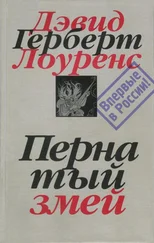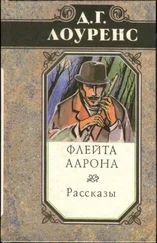Дэвид Лоуренс - Sons and Lovers
Здесь есть возможность читать онлайн «Дэвид Лоуренс - Sons and Lovers» весь текст электронной книги совершенно бесплатно (целиком полную версию без сокращений). В некоторых случаях можно слушать аудио, скачать через торрент в формате fb2 и присутствует краткое содержание. Жанр: Старинная литература, на английском языке. Описание произведения, (предисловие) а так же отзывы посетителей доступны на портале библиотеки ЛибКат.
- Название:Sons and Lovers
- Автор:
- Жанр:
- Год:неизвестен
- ISBN:нет данных
- Рейтинг книги:3 / 5. Голосов: 1
-
Избранное:Добавить в избранное
- Отзывы:
-
Ваша оценка:
- 60
- 1
- 2
- 3
- 4
- 5
Sons and Lovers: краткое содержание, описание и аннотация
Предлагаем к чтению аннотацию, описание, краткое содержание или предисловие (зависит от того, что написал сам автор книги «Sons and Lovers»). Если вы не нашли необходимую информацию о книге — напишите в комментариях, мы постараемся отыскать её.
Sons and Lovers — читать онлайн бесплатно полную книгу (весь текст) целиком
Ниже представлен текст книги, разбитый по страницам. Система сохранения места последней прочитанной страницы, позволяет с удобством читать онлайн бесплатно книгу «Sons and Lovers», без необходимости каждый раз заново искать на чём Вы остановились. Поставьте закладку, и сможете в любой момент перейти на страницу, на которой закончили чтение.
Интервал:
Закладка:
“The two loaves at the top,” she said, “will be done in twenty minutes. Don’t forget them.”
“All right,” he answered; and she went to market.
He remained alone working. But his usual intense concentration became unsettled. He listened for the yard-gate. At a quarter-past seven came a low knock, and Miriam entered.
“All alone?” she said.
“Yes.”
As if at home, she took off her tam-o’-shanter and her long coat, hanging them up. It gave him a thrill. This might be their own house, his and hers. Then she came back and peered over his work.
“What is it?” she asked.
“Still design, for decorating stuffs, and for embroidery.”
She bent short-sightedly over the drawings.
It irritated him that she peered so into everything that was his, searching him out. He went into the parlour and returned with a bundle of brownish linen. Carefully unfolding it, he spread it on the floor. It proved to be a curtain or portiere, eabeautifully stencilled with a design on roses.
“Ah, how beautiful!” she cried.
The spread cloth, with its wonderful reddish roses and dark green stems, all so simple, and somehow so wicked-looking, lay at her feet. She went on her knees before it, her dark curls dropping. He saw her crouched voluptuously before his work, and his heart beat quickly. Suddenly she looked up at him.
“Why does it seem cruel?” she asked.
“What?”
“There seems a feeling of cruelty about it,” she said.
“It’s jolly good, whether or not,” he replied, folding up his work with a lover’s hands.
She rose slowly, pondering.
“And what will you do with it?” she asked.
“Send it to Liberty’s. 7I did it for my mother, but I think she’d rather have the money.”
“Yes,” said Miriam. He had spoken with a touch of bitterness, and Miriam sympathised. Money would have been nothing to her .
He took the cloth back into the parlour. When he returned he threw to Miriam a smaller piece. It was a cushion-cover with the same design.
“I did that for you,” he said.
She fingered the work with trembling hands, and did not speak. He became embarrassed.
“By Jove, the bread!” he cried.
He took the top loaves out, tapped them vigorously. They were done. He put them on the hearth to cool. Then he went to the scullery, wetted his hands, scooped the last white dough out of the panchion, and dropped it in a baking-tin. Miriam was still bent over her painted cloth. He stood rubbing the bits of dough from his hands.
“You do like it?” he asked.
She looked up at him, with her dark eyes one flame of love. He laughed uncomfortably. Then he began to talk about the design. There was for him the most intense pleasure in talking about his work to Miriam. All his passion, all his wild blood, went into this intercourse with her, when he talked and conceived his work. She brought forth to him his imaginations. She did not understand, any more than a woman understands when she conceives a child in her womb. But this was life for her and for him.
While they were talking, a young woman of about twenty-two, small and pale, hollow-eyed, yet with a relentless look about her, entered the room. She was a friend at the Morels’.
“Take your things off,” said Paul.
“No, I’m not stopping.”
She sat down in the arm-chair opposite Paul and Miriam, who were on the sofa. Miriam moved a little farther from him. The room was hot, with a scent of new bread. Brown, crisp loaves stood on the hearth.
“I shouldn’t have expected to see you here to-night, Miriam Leivers,” said Beatrice wickedly.
“Why not?” murmured Miriam huskily.
“Why, let’s look at your shoes.”
Miriam remained uncomfortably still.
“If tha doesna tha durs’na,” eblaughed Beatrice.
Miriam put her feet from under her dress. Her boots had that queer, irresolute, rather pathetic look about them, which showed how self-conscious and self-mistrustful she was. And they were covered with mud.
“Glory! You’re a positive muck-heap,” exclaimed Beatrice. “Who cleans your boots?”
“I clean them myself.”
“Then you wanted a job,” said Beatrice. “It would ha’ taken a lot of men to ha’ brought me down here to-night. But love laughs at sludge, doesn’t it, ’Postle my duck?”
“Inter alia,” he said.
“Oh, Lord! are you going to spout foreign languages? What does it mean, Miriam?”
There was a fine sarcasm in the last question, but Miriam did not see it.
“‘Among other things,’ I believe,” she said humbly.
Beatrice put her tongue between her teeth and laughed wickedly.
“‘Among other things,’ ‘Postle?” she repeated. “Do you mean love laughs at mothers, and fathers, and sisters, and brothers, and men friends, and lady friends, and even at the b’loved himself?”
She affected a great innocence.
“In fact, it’s one big smile,” he replied.
“Up its sleeve, ’Postle Morel—you believe me,” she said; and she went off into another burst of wicked, silent laughter.
Miriam sat silent, withdrawn into herself Every one of Paul’s friends delighted in taking sides against her, and he left her in the lurch—seemed almost to have a sort of revenge upon her then.
“Are you still at school?” asked Miriam of Beatrice.
“Yes.”
“You’ve not had your notice, then?”
“I expect it at Easter.”
“Isn’t it an awful shame, to turn you off merely because you didn’t pass the exam.?”
“I don’t know,” said Beatrice coldly.
“Agatha says you’re as good as any teacher anywhere. It seems to me ridiculous. I wonder why you didn’t pass.”
“Short of brains, eh, ’Postle?” said Beatrice briefly.
“Only brains to bite with,” replied Paul, laughing.
“Nuisance!” she cried; and, springing from her seat, she rushed and boxed his ears. She had beautiful small hands. He held her wrists while she wrestled with him. At last she broke free, and seized two handfuls of his thick, dark brown hair, which she shook.
“Beat!” he said, as he pulled his hair straight with his fingers. “I hate you!”
She laughed with glee.
“Mind!” she said. “I want to sit next to you.”
“I’d as lief ecbe neighbours with a vixen,” he said, nevertheless making place for her between him and Miriam.
“Did it ruffle his pretty hair, then!” she cried; and, with her hair-comb, she combed him straight. “And his nice little moustache!” she exclaimed. She tilted his head back and combed his young moustache. “It’s a wicked moustache, ’Postle,” she said. “It’s a red for danger. Have you got any of those cigarettes?”
He pulled his cigarette-case from his pocket. Beatrice looked inside it.
“And fancy me having Connie’s last cig.,” said Beatrice, putting the thing between her teeth. He held a lit match to her, and she puffed daintily.
“Thanks so much, darling,” she said mockingly.
It gave her a wicked delight.
“Don’t you think he does it nicely, Miriam?” she asked.
“Oh, very!” said Miriam.
He took a cigarette for himself.
“Light, old boy?” said Beatrice, tilting her cigarette at him.
He bent forward to her to light his cigarette at hers. She was winking at him as he did so. Miriam saw his eyes trembling with mischief, and his full, almost sensual, mouth quivering. He was not himself, and she could not bear it. As he was now, she had no connection with him; she might as well not have existed. She saw the cigarette dancing on his full red lips. She hated his thick hair for being tumbled loose on his forehead.
“Sweet boy!” said Beatrice, tipping up his chin and giving him a little kiss on the cheek.
Читать дальшеИнтервал:
Закладка:
Похожие книги на «Sons and Lovers»
Представляем Вашему вниманию похожие книги на «Sons and Lovers» списком для выбора. Мы отобрали схожую по названию и смыслу литературу в надежде предоставить читателям больше вариантов отыскать новые, интересные, ещё непрочитанные произведения.
Обсуждение, отзывы о книге «Sons and Lovers» и просто собственные мнения читателей. Оставьте ваши комментарии, напишите, что Вы думаете о произведении, его смысле или главных героях. Укажите что конкретно понравилось, а что нет, и почему Вы так считаете.









